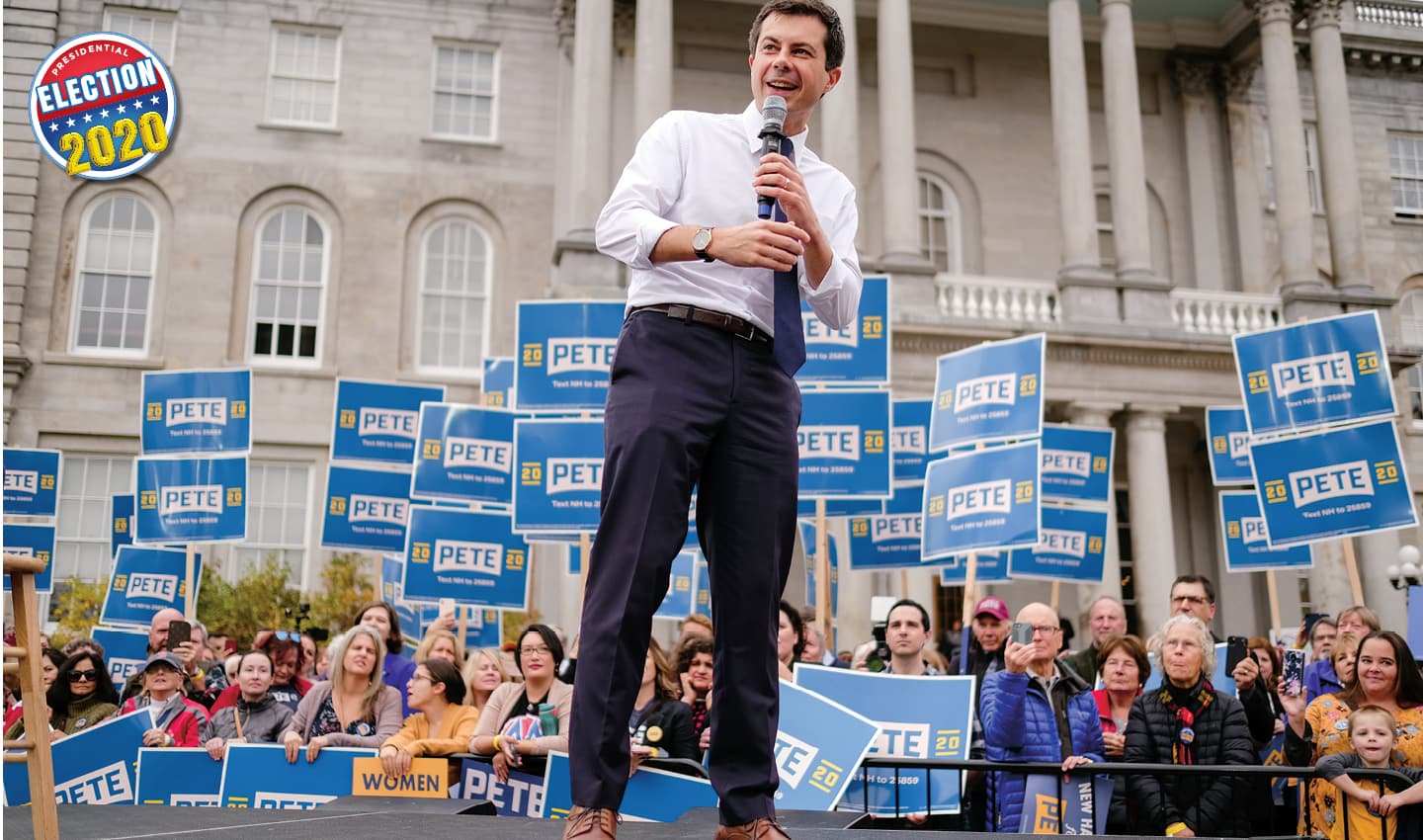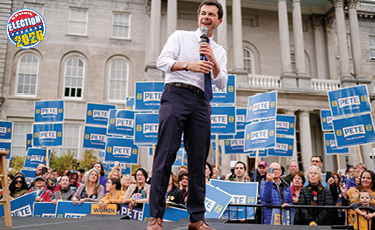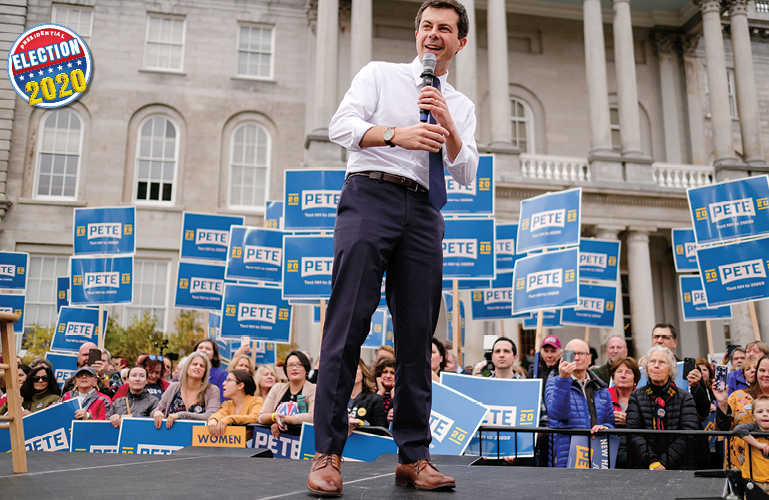It’s an unseasonably warm fall day in Milford, New Hampshire, and Pete Buttigieg is doing the kind of thing presidential candidates often do in this state: taking a walking tour of a charming downtown.
Trailed by a swarm of reporters and photographers, Buttigieg (pronounced BOOT-edge-edge) and Milford’s mayor stroll by the mom-and-pop stores on Union Square, making quick stops in the Arrow Diner and a gift shop that sells jewelry, cards, and assorted knickknacks.
It’s an unseasonably warm fall day in Milford, New Hampshire. Pete Buttigieg is doing the kind of thing presidential candidates often do in this state: taking a walking tour of a charming downtown.
Trailed by a swarm of reporters and photographers, Buttigieg (pronounced BOOT-edge-edge) and Milford’s mayor stroll by the mom-and-pop stores on Union Square. They make quick stops in the Arrow Diner and a gift shop that sells jewelry, cards, and assorted knickknacks.



